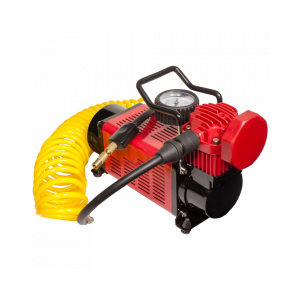High-Quality Oil Seals and Gaskets for Optimal Performance
Understanding Oil Seals and Gaskets Essential Components in Mechanical Engineering
In the world of mechanical engineering, precision and reliability are crucial. Among the multitude of components that ensure the smooth operation of machines, oil seals and gaskets play a vital role. Although often overlooked, these humble parts are essential in maintaining the integrity, efficiency, and longevity of various mechanical systems.
Oil Seals Function and Importance
Oil seals, sometimes referred to as shaft seals, are designed to prevent the leakage of lubricants and other fluids from machinery. Typically made from rubber, silicone, or other elastomeric materials, oil seals feature a lip that makes contact with a rotating shaft. This contact creates a barrier that seals the oil inside the machinery and keeps contaminants, moisture, and dirt from entering.
The primary function of oil seals is to reduce friction and wear on moving parts, which is critical for the longevity of machinery. Without effective sealing, oil can leak out, leading to inadequate lubrication, increased wear and tear, and ultimately, catastrophic failure. In addition to their sealing function, oil seals also help maintain pressure within a system, allowing for better performance and efficiency.
Gaskets The Unsung Heroes of Sealing
While oil seals often deal with rotating shafts, gaskets are used to create a seal between two stationary surfaces. Gaskets are typically made from materials such as rubber, cork, or metal, and come in various shapes and sizes to fit specific applications. The primary purpose of a gasket is to prevent leakage of fluids or gases from the joint between the two surfaces, which is particularly important in engines, pipelines, and hydraulic systems.
oil seals and gaskets

Gaskets are crucial in applications where high temperature and pressure are present. They not only prevent leaks but also accommodate the expansion and contraction of materials that occurs during operation. A well-fitted gasket can significantly improve efficiency and safety by ensuring that machinery operates within optimal parameters.
Choosing the Right Oil Seals and Gaskets
Selecting the appropriate oil seals and gaskets is essential for ensuring the reliability and efficiency of mechanical systems. Factors such as temperature, pressure, and fluid compatibility must be considered when choosing these components. For instance, high-temperature applications may require gaskets made from special materials like graphite or metal, while oil seals used in hydraulic systems need to withstand high pressure.
Moreover, improper installation of oil seals and gaskets can lead to leakage and failure. It is crucial to follow manufacturer instructions and guidelines during installation to ensure a proper fit and seal. Regular maintenance and inspection of these components can also prevent premature wear and failure, extending the lifespan of machinery.
Conclusion
In summary, oil seals and gaskets are indispensable components in mechanical engineering, playing a crucial role in ensuring the efficiency and reliability of machinery. Understanding their functions, importance, and proper selection can lead to significant benefits in performance and durability. Whether one is involved in automotive, aerospace, or any other industry that relies on mechanical systems, paying closer attention to these essential parts can enhance overall operational success. Whether it's preventing leaks or maintaining pressure, oil seals and gaskets undoubtedly deserve recognition as vital contributors to machinery performance.
-
Simplifying Oil Changes: A Comprehensive Guide to Oil Drain Plugs and Their Variants
News Aug.04,2025
-
Mastering Oil Drain Maintenance: Solutions for Stripped, Worn, and Upgraded Oil Plugs
News Aug.04,2025
-
Fixing Oil Pan Plug Issues: Leaks, Stripped Nuts, and the Right Replacement Solutions
News Aug.04,2025
-
Everything You Need to Know About Oil Drain Plugs: Sizes, Fixes, and Upgrades
News Aug.04,2025
-
Choosing the Right Oil Drain Plug: A Guide to Sizes, Materials, and Drain Innovations
News Aug.04,2025
-
A Complete Guide to Automotive Drain Plugs: Types, Problems, and Innovative Solutions
News Aug.04,2025
-
The Ultimate Guide to Car Repair Kits: Tools and Essentials Every Driver Should Own
News Aug.01,2025
Products categories















